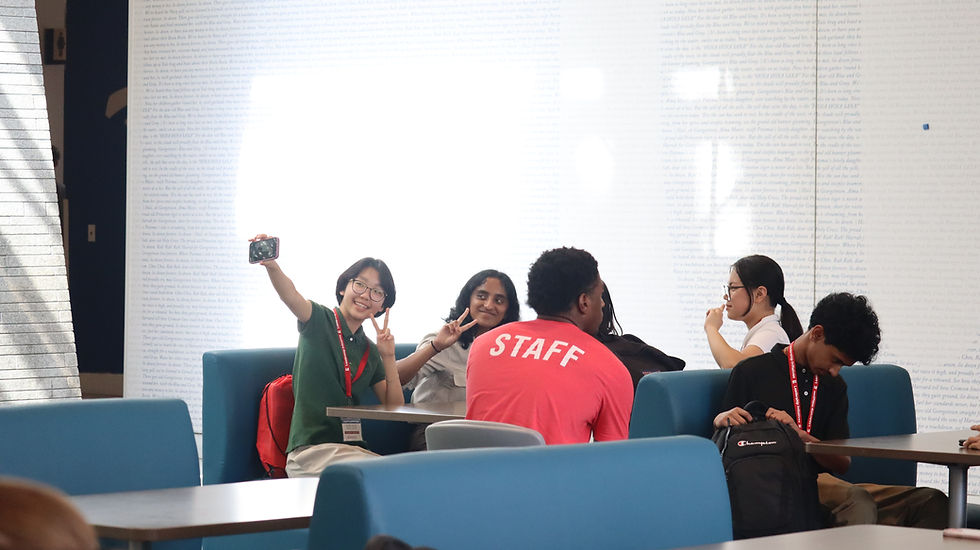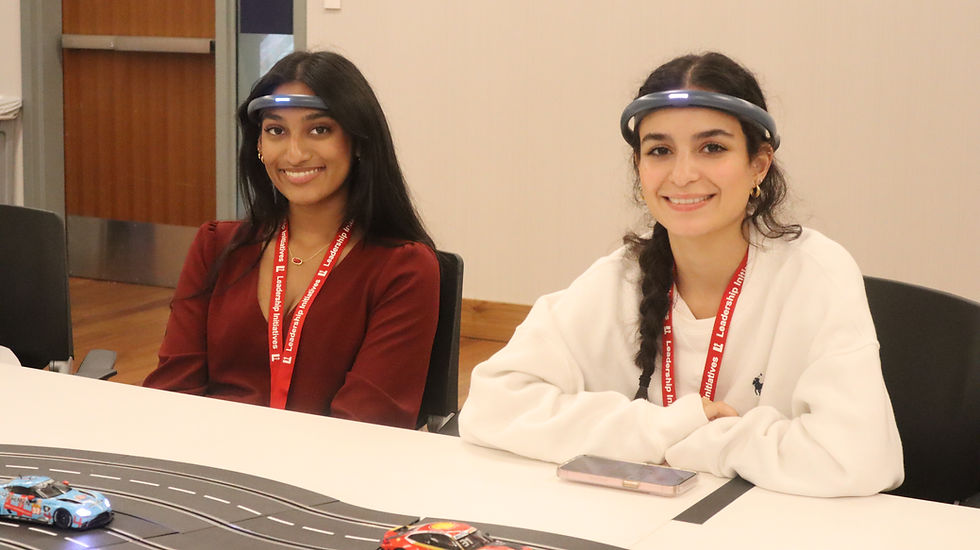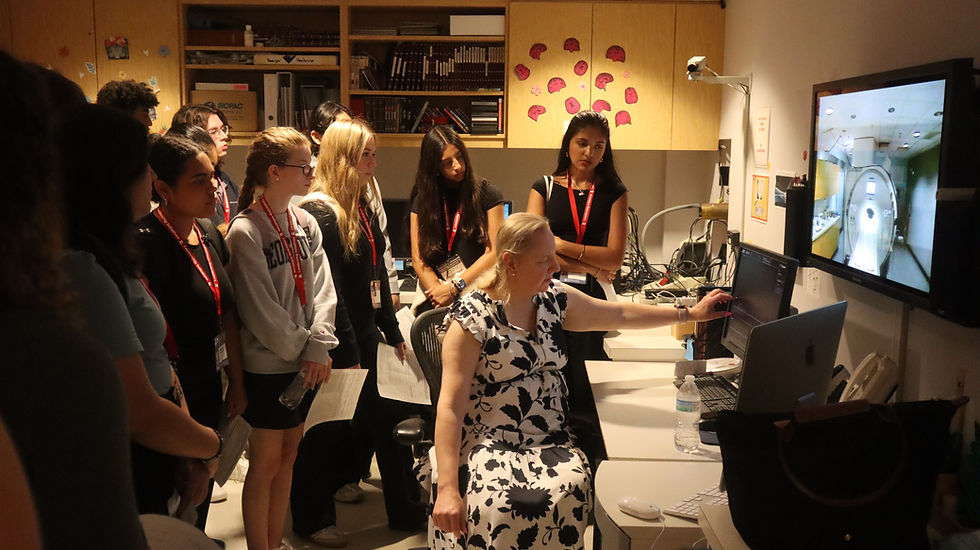A Day in the Life of a Neurologist: Science, Storytelling, and the Human Brain
- Marshall Bailly
- Jul 8, 2025
- 2 min read
The internship moved forward with one of its most impactful moments yet, combining compelling patient experiences with expert neurological knowledge.
In the afternoon session, interns gathered for a memorable panel discussion titled “A Day in the Life of a Neurologist,” featuring two extraordinary guests: Dr. Michael Okun and Captain Rick Schena. Together, they offered a rich, multidimensional perspective on what it means to live with and treat complex neurological disorders.

Dr. Okun is an internationally recognized neurologist, co-founder of the Norman Fixel Institute for Neurological Diseases, and author of Ending Parkinson’s Disease. He shared his deep knowledge of movement disorders and the transformative potential of deep brain stimulation (DBS). Guided by the philosophy that “the patient is the sun,” Dr. Okun described how empathy and innovation must go hand in hand in neurological care.
One story, in particular, left a lasting impression. He shared the case of Christopher, a young boy with dystonia whose life was significantly improved through DBS. As Dr. Okun explained the science behind the treatment, it was Christopher’s courage and his doctors’ dedication that truly resonated with the interns. It was a powerful reminder that behind every diagnosis is a human being.
Captain Rick Schena then brought a deeply personal perspective. A former commercial pilot, Rick now lives with Parkinson’s disease. He shared his journey of adjusting to life with a progressive neurological condition, offering rare insight into the patient experience. Rick spoke not only as someone living with the disease, but also as an advocate for research and future medical professionals. He and his wife have generously committed a one-million-dollar bequest to support Parkinson’s research and fellow training at Georgetown’s Movement Disorders Clinic.

For many interns, hearing from Captain Schena made a lasting impact. Marleigh R. reflected, “The captain’s view and experience definitely made me think differently about Parkinson’s patients. I also learned he never gave up on his life. He used whatever leverage he could to get better.”
Ashwika P. added, “Something that stood out to me was how positive he was throughout most of his life, even with Parkinson's. It really helped me understand his perspective and what it was like for him to have both dyslexia, Parkinson's, and later getting DBS.”
Together, Dr. Okun and Captain Schena created a conversation that went far beyond clinical facts. They offered a meaningful blend of science, empathy, and real-world application that left interns inspired and reflective. Many students remarked that this session helped them see the kind of doctor they hope to become.
As the afternoon wrapped up, interns explored the historic streets of Georgetown. Yet the conversations continued. Discussions about the brain, medicine, and future careers filled the air as interns bonded not only as classmates but as future colleagues. The day’s lessons stayed with them, shaping the way they saw their role in the world of neuroscience and medicine.

Tomorrow, interns will explore new and complex subjects such as neurodiversity, global biosecurity, and ethics in neuroscience. Today’s deep dive into clinical neurology and human experience has given them both knowledge and inspiration to approach these topics with purpose and confidence.





Comments